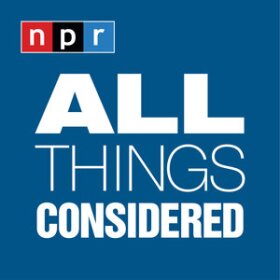
All Things Considered
All Things Considered is the most listened-to, afternoon drive-time, news radio program in the country. Every weekday the two-hour show is hosted locally by KVCR's David Fleming and nationally by Ailsa Chang, Audie Cornish, Mary Louise Kelly, and Ari Shapiro.
Latest
-
Shia communities in South Asia erupted in anger as news emerged of the assassination of the Iranian supreme leader Ayatollah Ali Khamenei.
-
Does the color of a concert venue change how we hear music? German researchers have an answer.
-
Ayatollah Ali Khamenei died in the bombing of Iran over the weekend. Vali Nasr of Johns Hopkins University talks about Khamenei's role as one of the most influential Shia clerics in the world.
-
NPR's Juana Summers speaks with Amby Burfoot, former editor of Runner's World, about his longtime friend Jeff Galloway who pioneered the run/walk method. Jeff Galloway died Feb. 25.
-
Gorillaz, the animated band, burst on the scene 25 years ago. NPR's Juana Summers talks to musician Damon Albarn and artist Jamie Hewlett, the band's creators, about how it has evolved.
-
President Trump is offering some indication about how long the war with Iran might last.
-
Global oil prices are in the high $70s as traffic through Strait of Hormuz comes to a halt. Some analysts have warned they could top $100 a barrel if the stoppage is prolonged.

